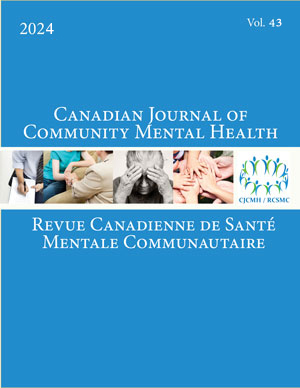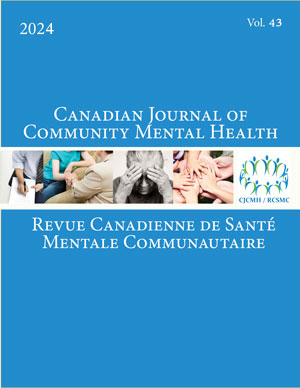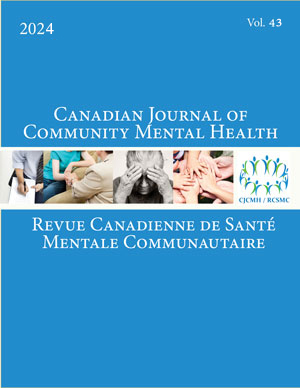Volume 30 • Number 2 • September 2011
OPEN ACCESS
OPEN ACCESS
OPEN ACCESS
Alors que la majorité des études sur l'homophobie ont documenté la nature des actes homophobes et leurs impacts négatifs sur les adolescentes et adolescents qui en sont victimes, très peu d'études ont fait la lumière sur leurs facteurs de protection. Cet article s'appuie sur des données qualitatives recueillies auprès de 64 jeunes de minorités sexuelles de 14 à 24 ans qui ont témoigné de leurs expériences scolaires relatives à l'homophobie, à l'école secondaire ou au collège. Des facteurs de protection intrapersonnels, environnementaux et liés à la mobilisation ont été identifiés. Les résultats suggèrent de considérer les facteurs facilitant la résilience dans les pratiques d'intervention des professionnels et professionnelles travaillant auprès de cette population.
OPEN ACCESS
Cette étude vise à mieux appréhender les facteurs de vulnérabilité des jeunes lesbiennes et gais en lien avec les attitudes de leurs parents vis-à-vis de leur homosexualité. Elle a été menée en France auprès de 82 jeunes lesbiennes et gais. Au sein du groupe, 66 % affirment avoir déjà eu des idées suicidaires tandis que 31 % disent avoir déjà fait au moins une tentative de suicide. Ces résultats mettent en lumière la vulnérabilité de cette population. Par ailleurs, les résultats montrent qu'une attitude paternelle perçue comme rejetante est corrélée à la présence d'idées suicidaires et à la réalisation d'au moins une tentative de suicide. De plus, lorsque la réaction maternelle est perçue négativement, elle est corrélée à des difficultés d'interaction sociale et à un fort niveau d'inquiétude. L'attitude parentale perçue par les jeunes lesbiennes et gais constitue donc un élément probant de la détresse et du risque suicidaire élevé dans ce groupe.
OPEN ACCESS
This study examined enacted stigma and problem substance use among Asian sexual minority youth and the buffering role of protective factors. Logistic regression analyses of a weighted sample of 5,423 Asian youth who completed the 2003 BC Adolescent Health Survey indicated that sexual minority youth were more likely to be victimized compared to heterosexual peers. Furthermore, protective factors, such as involvement in extracurricular activities or healthy connections to peers or school, reduced the likelihood of problem substance use, even among stigmatized youth. The study highlights the need to create safe, supportive school and community environments for Asian sexual minority adolescents.
OPEN ACCESS
Sexually diverse youth are more likely than their heterosexual counterparts to be involved in a pregnancy. The social exclusion (heterosexism and homophobia) experienced by sexually diverse youth may help to contribute to our theoretical understanding of the phenomenon. Seventy-one sexually diverse youth and 23 service providers participated in interviews and focus groups which were transcribed and thematically coded. Pregnancy involvement can be understood as a response to heterosexism, where the “dominance of heterosexuality” in youths' lives produce extreme pressures to conform to heterosexist expectations of relationships and a desire to prove one's heterosexuality through heterosexual sex.
OPEN ACCESS
Psychological Health Correlates of Perceived Discrimination among Canadian Gay Men and Lesbian Women
Despite the growing number of studies investigating the association between perceived discrimination and psychological health, research of this kind is scarce in Canada. To begin addressing this omission, the present study documents the frequency of discriminatory events experienced by sexual minorities and their linkage with indicants of psychological well-being. Responding to an online survey, 348 self-identifying gay men (n = 177) and lesbian women (n = 169) completed measures of perceived discrimination, depression, psychological distress, life optimism, and self-esteem. Perceiving verbal insults and verbal threats were the most frequently cited incidents, and several statistically significant correlates of depression and psychological distress emerged. Exploratory analyses revealed that: (a) the association between depression and internalized homonegativity was greater in magnitude for lesbian women than for gay men; and (b) the associations between being the recipient of verbal insults and depression and psychological distress were greater for gay men than lesbian women. Limitations of the study and directions for future research are outlined.
OPEN ACCESS
Greater clarification is needed about the differences between gay and bisexual men's health issues. With data from a pan-Canadian online survey, bisexual (n = 564) and gay men (n = 1,109) were compared on 32 different psychological, social, and sexual self-perceived problems that they might have encountered over the past 12 months. Clear patterns emerged. Relative to gay men, bisexual men had significantly higher adjusted odds of different sexual orientation or identity problems and certain health behaviour problems but significantly lower odds of several mental health and HIV/STI-related problems.
OPEN ACCESS
High prevalences of depression have been reported in male-to-female (MTF) transgender communities. We explored factors associated with depressive symptomatology among MTF spectrum trans people in Ontario, using data from the Trans PULSE Project Phase II respondent-driven sampling survey (n = 433 participants, including 191 MTFs with data needed for this analysis). We estimated the prevalence of depression at 61.2%. Factors associated with higher odds of depressive symptomatology included living outside of Toronto, having some college or university (vs. completed), being unemployed, and experiencing higher levels of transphobia. Increasing social support was associated with reduced odds of depressive symptomatology. Multivariable analyses suggested complex relationships between these factors, passing, and childhood abuse, which require additional study.
OPEN ACCESS
Although depression is understudied in transgender and transsexual communities, high prevalences have been reported. This paper presents original research from the Trans PULSE Project, an Ontario-wide, community-based initiative that surveyed 433 participants using respondent-driven sampling. The purpose of this analysis was to determine the prevalence of, and risk and protective factors for, depression among female-to-male (FTM) Ontarians (n = 207). We estimate that 66.4% of FTMs have symptomatology consistent with depression. In multivariable analyses, sexual satisfaction was a strong protective factor. Conversely, experiencing transphobia and being at the stage of planning but not having begun a medical transition (hormones and/or surgery) adversely affected mental health in FTMs.
OPEN ACCESS
La présente recherche vise à mettre en lumière la résilience des hommes gais âgés vivant avec le VIH, acquise à travers leur parcours relié à l'homosexualité, au VIH et au vieillissement. S'inscrivant dans une approche qualitative, cette recherche s'appuie sur des entrevues semi-dirigées réalisées avec 10 hommes gais vivant avec le VIH âgés de 50 à 71 ans. L'analyse des données a permis de mettre en évidence 7 thématiques reflétant la résilience de cette population: la maturité, l'acceptation de soi, les épreuves surmontées, l'autonomie, l'appréciation de la valeur de la vie, l'attitude positive et le sentiment d'être chanceux.
OPEN ACCESS
Lesbian, gay, bisexual and transgender (LGBT) people report poorer mental health outcomes than do heterosexual, cisgender (non-trans) people, but little is known about their experiences with mental health services. In this qualitative study, 8 mental health service providers with substantial experience working with LGBT communities were interviewed in order to begin to examine systems-level barriers to supportive mental health services for LGBT people. The results suggest that the medical model, which is pervasive in the mental health system, produces particular access barriers for LGBT people. We offer recommendations for addressing these barriers, including implementing an anti-oppression approach to mental health care.










